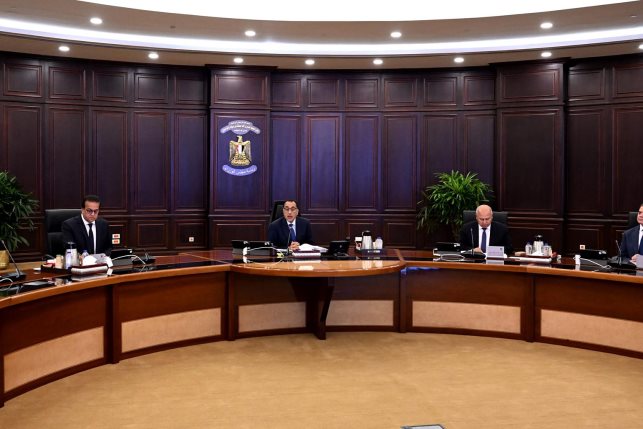Egypt officially hands over COP presidency to the UAE
As Egypt hands over its leadership role, it aims to build on the successes and outcomes achieved during its year-long presidency, particularly in advancing discussions on the Loss and Damage Fund and climate financing

Egypt's Foreign Minister Sameh Shoukry, president-designate of the COP27, officially passed on the presidency of the United Nations Climate Summit to the United Arab Emirates' Sultan Al-Jaber, marking the inauguration of the 28th session of the conference. As Egypt transitions its leadership role, it aims to build on the successes and outcomes achieved during its year-long presidency, particularly in advancing discussions on the Loss and Damage Fund and climate financing.
Yasmine Fouad, Minister of the Environment and Coordinator and Ministerial Envoy for the COP27 Climate Conference, emphasized Egypt's commitment to collaborating closely with the Emirati presidency of the current COP28 conference.
Additionally, Egypt aims to push forward the Nature-Based Solutions Initiative (ENACT), launched in partnership with Germany during COP27, with the participation of nearly 30 countries.
Minister Fouad highlighted Egypt's ambitious agenda, which requires significant funding, notably in renewable energy, electric trains, agricultural adaptation, and seawater desalination projects. Egypt is actively seeking billions of dollars in financing to support these crucial initiatives, Ashraq Bloomberg cited Fouad.
Loss and Damage Fund
Egypt seeks to leverage the achievements of the past year, including the discussions on the Loss and Damage Fund, which was announced during the COP27 conference in Sharm El-Sheikh.
During COP27 summit hosted by Egypt last year, negotiations witnessed a groundbreaking development—the inclusion of the losses and damages item on the conference agenda. Developed countries, who had previously resisted its inclusion, finally agreed to address the issue.
The summit also saw the establishment of a compensation fund to finance losses and damages, while refraining from imposing arbitrary standards on developing countries for emissions reduction plans.
Minister Fouad affirmed that one of Egypt's top priorities during COP28 is the implementation of the recommendations that emerged from the Sharm El-Sheikh conference. This includes establishing and activating the Loss and Damage Fund, which aims to secure contributions from G20 countries, G7 countries, and other developed nations.
In a significant step forward, the UN's COP28 climate conference, which commenced on Thursday, officially launched the long-awaited "loss and damage" fund. This fund, sought by vulnerable nations devastated by natural disasters linked to global warming, received commitments of $100 million each from the UAE and Germany.
Minister Fouad also highlighted Egypt's accomplishments over the past year, achieved through collaboration between the Ministries of Environment, Foreign Affairs, and other relevant ministries. Key initiatives include updating national pledges to be implemented by 2030, with an accelerated timeline of achieving 42% renewable energy production by that year. Egypt has embarked on modernizing electricity transmission networks and has signed agreements to generate over 1 gigawatt of renewable energy. The country has also joined the methane challenge, with the Ministry of Petroleum identifying projects requiring funding to reduce methane emissions in the oil and gas production process.
An unnamed official in the Egyptian Ministry of Finance confirmed that the ministry will seek to expand the use of green sovereign financing to support projects aimed at carbon emissions reduction, cited by Ashraq Bloomberg. This initiative encompasses prioritizing green industrial projects, such as renewable energy, alternative industries for plastic products, smart transportation, and water desalination projects, which will be financed through blue bonds.





